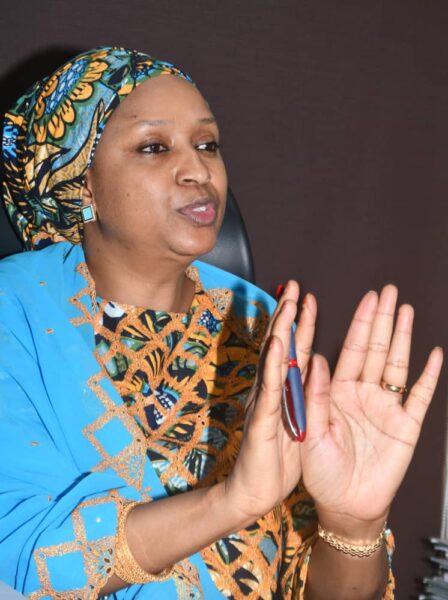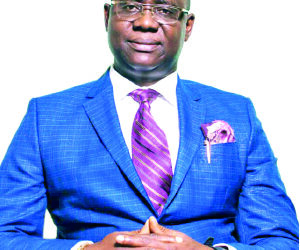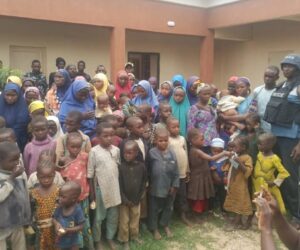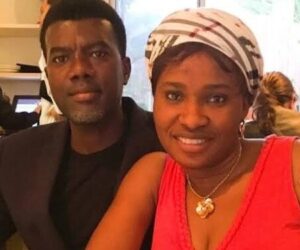Hadiza Bala Usman was born into an uncommon lineage, one that fused intellectual defiance with public duty. The daughter of the late historian and political activist Dr Yusufu Bala Usman, she has come to embody a different kind of radicalism: one rooted not in agitation, but in systems, delivery, and reform.
Her father, the fiery academic from Ahmadu Bello University, Zaria, belonged to the Aminu Kano-led People’s Redemption Party (PRP) during Nigeria’s Second Republic. His activism was intellectual and unrelenting. He challenged orthodoxy, founded the Centre for Democratic Development and Research Training (CDD), and left behind a legacy of rigorous dissent.
Hadiza inherited that spirit. But where her father fought from the ivory tower, she fights within the machinery of the state.
Born on January 2, 1976, in Zaria, Hadiza hails from the royal line of Katsina and Kano; her great-grandfather was Sarkin Katsina Muhammadu Dikko. She studied Business Administration at the Ahmadu Bello University and later earned a Master’s in Development Studies from the University of Leeds in 2009.
Her early career took her through the Bureau of Public Enterprises and the Federal Capital Territory Administration, where she worked under a UNDP project on infrastructure implementation. The exposure sharpened her instincts for policy design and governance reform.
In 2015, she made history as the first female chief of staff to a state governor in Nigeria under Nasir El-Rufai in Kaduna state. There, she helped institutionalise reform tools such as the Single Treasury Account (TSA) and zero-based budgeting, and strengthened human capital frameworks across ministries. “My role was about translating vision into reality,” she recalls.
Her next chapter was at the Nigerian Ports Authority (NPA), where she served as Managing Director from 2016 to 2021. Her tenure was marked by tighter financial controls, efforts to plug revenue leakages, and the introduction of performance-based contracting. It was an intense and controversial period, one she later chronicled in her 2023 memoir, Stepping on Toes: My Odyssey at the Nigerian Ports Authority, published by TheCable Books.
In June 2023, President Bola Ahmed Tinubu appointed her as Special Adviser on Policy and Coordination and head of the Central Delivery Coordination Unit (CDCU). The office’s mission is clear: align government priorities, track ministerial performance, and deliver measurable results.
Hadiza describes it as “a complete shift in governance style.” Her team designs performance scorecards for ministers, sets key performance indicators (KPIs), and ensures that each ministry’s goals reflect citizens’ needs.
For the first time in Nigeria’s history, the CDCU has introduced a Citizens’ Delivery Tracker, a public platform where Nigerians can see what each ministry is tasked to achieve and monitor progress in real time. “It brings transparency and accountability into the heart of governance,” she says. “Any citizen can now ask: what has my minister delivered?”
Across ministries, her unit has become the engine of results. In education, it is helping redesign the policy for Technical and Vocational Education (TVET) to better connect training to employability. In agriculture, it is coordinating efforts to build a national database of farmers to improve mechanisation, and curb post-harvest losses through targeted interventions.
Her office also plays a behind-the-scenes role in addressing security-related constraints on food production, linking agricultural reform to safe access to farmlands. In the Niger Delta, the unit has helped facilitate coordination among the Nigerian Navy, the National Security Adviser’s office, and oil sector regulators to protect energy infrastructure from vandalism.
These reforms, she argues, are not technocratic checklists; they are part of rebuilding the culture of delivery. “Governance must be about performance, not promises,” she says. “That’s the culture we’re institutionalising.”
Hadiza’s philosophy of public service is shaped as much by her heritage as by her experiences in government. Her late father taught her that ideas mean little without structure. “I’ve been part of the governance process for over two decades, both at the federal and state levels,” she says.
“I understand how systems fail, and what must be done for them to succeed.” For her, transparency and data are the new activism. “We’ve identified bottlenecks like the non-release of funds that delay performance. Where that happens, we assign accountability, even to the Ministry of Finance if that’s where the bottleneck lies.”
That insistence on structure, she believes, is what Nigeria needs most, a shift from improvisation to institution.
Hadiza’s vision for Nigeria is rooted in self-sufficiency and inclusion. “A nation that feeds itself, that’s safe, productive, and exporting talent to the world,” she says. “We have the people, the creativity, and the resilience. What we need are systems that work.”
But she also calls for a generational renewal, more reform-minded Nigerians in public life. “Government’s role is to create an enabling environment, not employ everyone,” she says. “We need more young people who see entrepreneurship as service, and service as leadership.”
Her message is simple but powerful: integrity, competence, and accountability must become Nigeria’s new social contract.
Hadiza Bala Usman stands today at the intersection of activism and administration, of reform and resilience. The radical’s daughter has come of age, not as a protester outside power, but as a reformer within it. And in a country still searching for governance that delivers, that may be the most radical act of all. Tenement rates and land use charge as sources of LG revenue.








